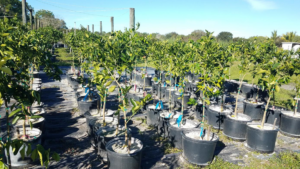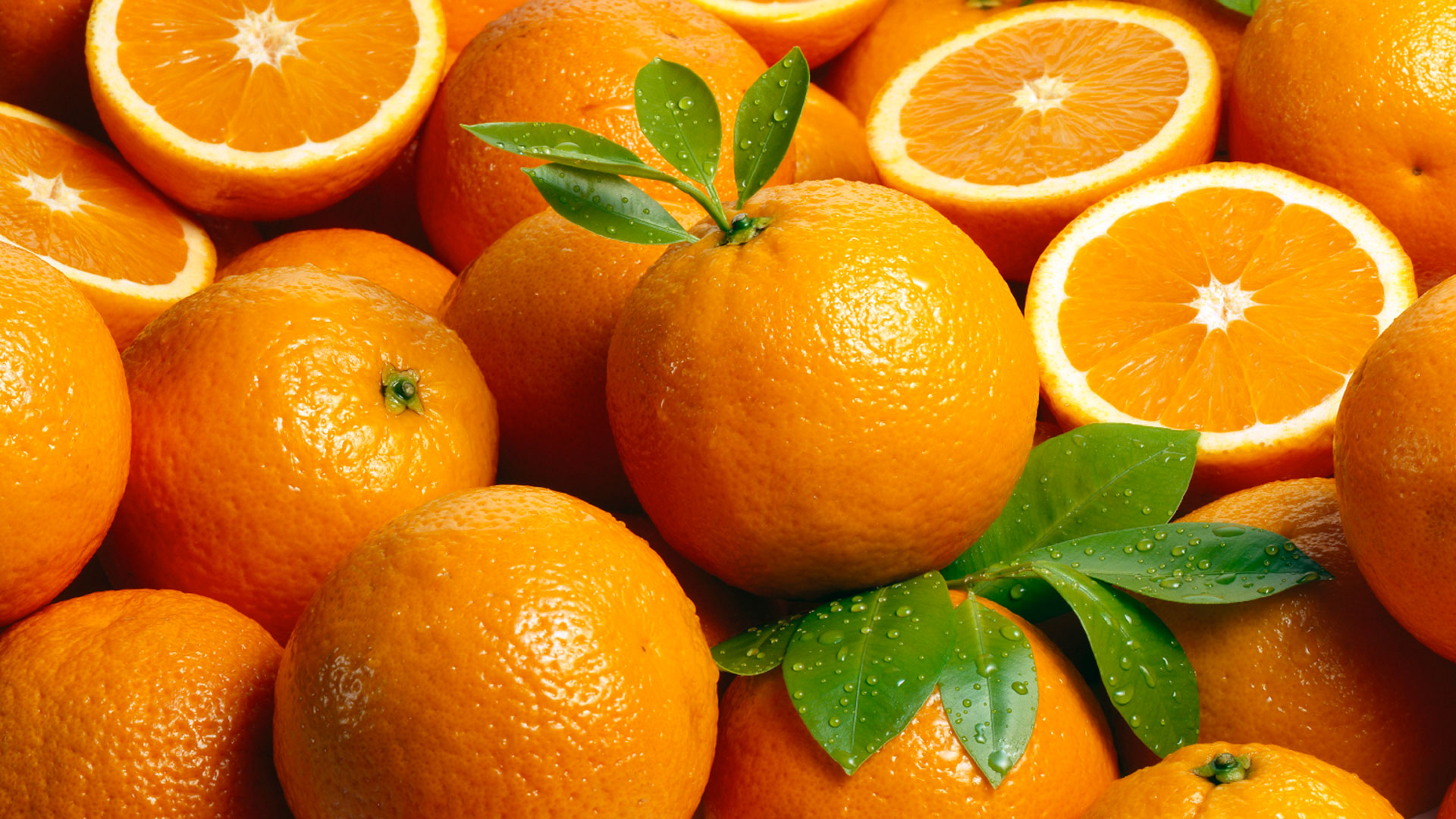Egypt is becoming a citrus export force which has spurred new, extensive planting over large areas. Export markets include the EU, the UAE, Saudi Arabia, Jordan, the Eastern Block, and far eastern countries such as China, Malaysia, Thailand, Korea, and Japan. Viable export, however, requires superlative quality characterized by the absence of fruit markings, high juice content, a favourable skin finish and skin to pulp relationship, and the desired total soluble solids to acid ratio. Therefore, attaining enhanced quality and production standards for citrus in Egypt represents a new challenge for growers who are used to a far from fastidious, but low-paying local market. Valencia orange is the main citrus type grown and gets the main export interest. Mandarins of a range of varieties come second (Fig. 1).

Figure 1. Valencia orange trees spaced at 7x5 m² in Wadi Natroon, Egypt. Conversion to more intense planting represents an opportunity. In this orchard, yield is around 16 TM per 4.200 m² (one feddan) but 30TM per feddan are easily achieved by growers who fertilise and irrigate this crop ideally. Canopy light exposure percentage and daily duration, and the proper relationship between canopy to land-surface area, also have a manifest impact on production.
Although growers are benefiting from tailored liquid and solid fertigation programmes supplied by Centech, Yara Egypt, and MSF, further quality and productivity enhancements can be achieved through an additional foliar fertilisation programme.
Pre-flowering “shock” spray treatment with low biuret urea (1 kg per 100 l) increases flowering intensity and thus yield. Spray applications of Ultrasol® K or Agromore 6-6-43 (specifically potassium nitrate) when the fruits are from 15 to 25 mm in diameter have the specific benefit to increase fruit size. Growers apply Ultrasol® K as a full cover spray at 3% concentration. A dose rate of 4% often results in leaf tip burn. Less fruit creasing (sub-epidermal “indentation” lines are prevalent when the rind is thin) and less fruit cracking (associated with cell wall development problems) have also been noted resulting from these sprays. Ultrasol® Calcium (specifically calcium nitrate) sprays (1 kg per 100 l) also reduce the incidence of peel cracking and creasing. In Egypt, due to soil pH exceeding 7,3, the addition of trace-element cocktails (Ultrasol® micro Rexene® or Tenso Cocktail) is recommended. Rates of at least 500 g per 100 litres should be applied. Leaf analysis results are particularly important to determine the need for such sprays. Potassium sufficiency in trees is generally hard to achieve through fertigation; especially in superlative quality fruits due to their very high relative need for potassium (Fig. 2).
Trace element deficiency in Valencia orange is commonly observed if the full-complement of trace elements is not continually root-fed. Fe-EDDHA, Cu-EDTA, Mn-EDTA, Zn-EDTA, boric acid and ammonium molybdate are the forms to ensure success. Combining foliar spraying with well-balanced and complete soil feeding provides a clear opportunity to increase production and quality for Egyptian citrus growers. New demands on quality due to the need to export have been recognized.

Figure 2. Consumption of N, P, K Ca, Mg, and S of superlative quality Valencia orange from fruit set till harvest (Oosthuyse, 2002). Potassium nitrate better enables fruit K sufficiency than potassium sulphate or potassium chloride, both in spraying and in fertigating.




